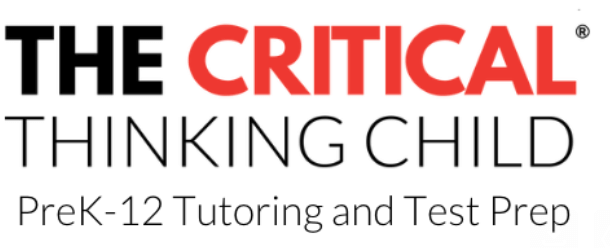All this month we’ve been taking a closer look at learning styles. When it comes to growing academically, some students will naturally gravitate towards a specific way of learning. When you know your child’s preferences, you can help them target their strengths and actively develop in more challenging areas. This can help give your child a leg up academically.
So far in this series, we’ve covered two of the four main learning preferences: literary learners and active learners. Today, we’re going to take a closer look at analytical learners. In this post, you will learn more about what analytical learners are, their typical strengths and weaknesses, and how you can help your analytical learner at home.
What is an analytical learner?
Also nicknamed the “scientist” or the “investigator”, analytical learners love logic, puzzles and uncovering how their world works. These learners sometimes drive their parents and teachers crazy by asking “why?” all the time! They love being presented with new problems and working through them in a systematic way.
Analytical learners tend to do best when information is presented in an orderly, step-by step fashion. They prefer to focus on learning the small details first and then move on to make sense of the whole concept. Analytical learners usually have long attention spans and work best by themselves, which allows them to focus on a single problem until it is solved to their satisfaction.
Strengths of analytical learners
Analytical learners tend to have good memories, so they excel at recalling facts, formulas, and names. They tend to be good at time management and are great at planning ahead and staying well organized. Since they learn in a sequential manner, traditional school settings are a good fit for them and they are often able to learn from traditional teaching methods without a lot of intervention needed.
These learners are often able to remember oral directions, independently take notes, and make sense of lecture style lessons at school. They are naturally reflective and can evaluate themselves and learn from their mistakes. Analytical learners tend to excel in math, science, and engineering courses since they can make sense of steps and formulas.
Challenges faced by analytical learners
While analytical learners love detail, they sometimes struggle with big picture concepts and reading comprehension since they can get caught up in the minutiae. Since they are so logical and reasonable, they may have trouble with humanities concepts like character traits and emotion since these concepts don’t always make logical sense.
These learners can also sometimes become frustrated if a concept doesn’t make immediate logical sense or if information is presented in an open-ended manner. If they are unable to get their “why” questions answered to their satisfaction, they may become disengaged or frustrated as well. Since analytical workers work so well alone, they can be frustrated by group work or easily distracted in chaotic or unstructured environments.
How you can help your analytical learner at home
Analytical learners learn best in a more traditional school settings and with traditional teaching styles. If your child is in one of these settings, they will likely see success in school. However, if they attend a school with more non-traditional techniques (such as a focus on group work, they may need additional support at home.
To help at home, you can:
- Keep routines and structures that allow your child time to focus on work without distraction
- Present new information in a sequential, logical format
- Allow your child to take notes and make sense of concepts
- Give your child plenty of time to answer questions and memorize facts
As you work with your child, make sure your directions are clear; ambiguity is incredibly frustrating for analytical learners! A rubric or written checklist for exactly what is expected on an assignment will help offer guidance throughout a task and make sure your analytical learner is successful.
Analytical learners are one of the types of learners that benefits most from traditional classroom settings, so all you must do is continue with structure, routines, and clear directions at home and your analytical learner will soar!
Do you know your child’s learning style? If not, click here to take the quiz and find out!



